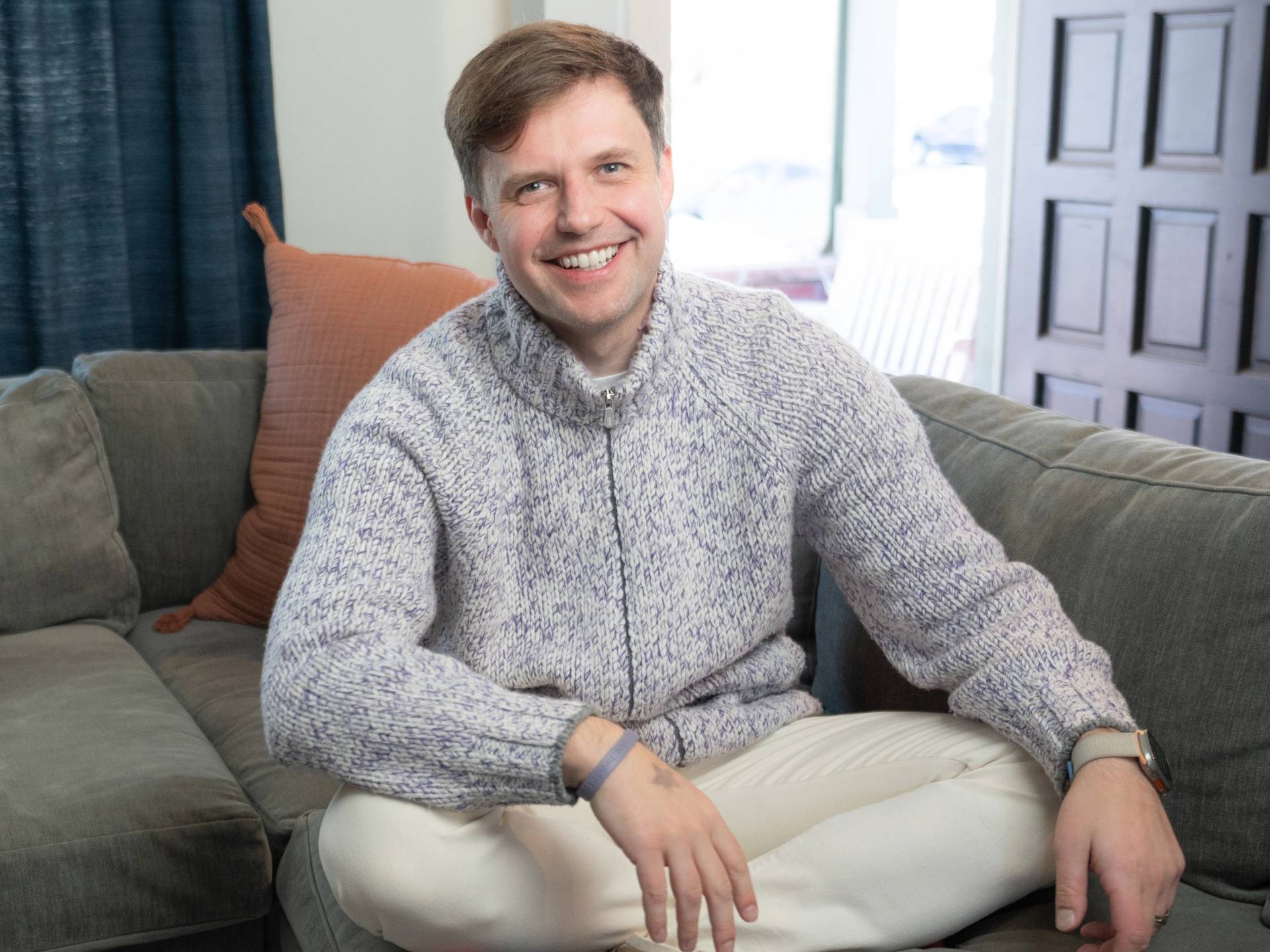订阅 wiki
Share wiki
Bookmark
Michael Heinrich
0%
Michael Heinrich
Michael Heinrich 是 0G Labs 的联合创始人兼 CEO,0G Labs 是一个专注于去中心化人工智能的 Layer 1 区块链平台。他也是 Garten(前身为 Oh My Green)的创始人,这是一家企业健康公司,已达到独角兽地位。 [1] [2]
早年生活
Heinrich 出生于乌克兰的阿卢什塔,父母是德国出生的、讲俄语的学者,他们在顿涅茨克大学学习时相识。出生后不久,全家搬到了他父亲的家乡德国东柏林。他们住在离柏林墙大约 100 米的地方,Heinrich 还记得 1989 年 11 月 9 日柏林墙倒塌的那个夜晚。在东德长大的童年时期,他是名为“少先队”的课后小组的一员,该小组是向儿童早期介绍共产主义原则的组织。
柏林墙倒塌后,Heinrich 的父亲开始在软件公司 SAP 工作,最终从柏林办事处调到加利福尼亚州帕洛阿尔托的实验室。全家搬到美国给 Heinrich 带来了重大变化,他来的时候不会说英语。他被安排在一所德美学校就读,并形容自己感觉像一个来自东柏林的移民,感到很孤立。为了打发无聊,他花时间在他父亲的 SAP 办公室里,一位同事在那里教他编程。他很快就掌握了编程技能,并为公司从事内部软件项目。 [2]
教育
Heinrich 的教育之路与众不同。当他的德美高中因学生人数减少而无法再支持 11 年级课程时,他选择参加 GED 考试并进入当地的专科学校,完成了他本应读完的最后两年高中课程。在专科学校学习三年后,他转到加州大学伯克利分校,在那里他学习了工程学和以人文科学为中心的学科,并以最优等的成绩毕业。在本科学习期间,他还在哈佛大学进行了研究。多年后,在开始他的职业生涯后,Heinrich 重返学术界,并在斯坦福大学攻读硕士学位,专注于工程和商业管理。 [2] [3] [4] [6]
职业生涯
Heinrich 的职业生涯始于在 SAP、微软 Visual Studio 团队和摩根大通的实习。从加州大学伯克利分校毕业后,他于 2006 年至 2008 年在贝恩公司担任管理顾问。然后,他于 2008 年加入对冲基金 Bridgewater Associates,在那里他在大金融危机期间从事投资组合构建工作。由于对自己的角色感到不满意,他离开了 Bridgewater,在进入斯坦福大学之前,追求了一段自我发现的时期,这为他后来从事区块链技术工作奠定了基础。
在斯坦福大学期间,受到个人向更健康生活方式转变的启发,Heinrich 创立了他的第一家公司 Oh My Green,后来更名为 Garten。这家企业健康初创公司为企业采购和提供健康的自助餐厅选择,早期获得了发展势头,并获得了苹果公司作为其首批主要客户之一。Garten 于 2016 年被 Y Combinator 加速器录取,并实现了显著增长,据报道,到 2019 年,其年收入超过 1 亿美元,并达到了独角兽地位。该业务在 2020 年受到 COVID-19 疫情的严重影响,几乎一夜之间消除了 95% 的收入,并迫使公司裁员约 70%。尽管 Garten 在危机中幸存下来,但 Heinrich 最终决定辞去 CEO 的职务。
2023 年,Heinrich 与 Thomas Yao、Fan Long 和 Ming Wu 共同创立了 0G Labs,他们是 Layer 1 协议 Conflux 背后的技术人员。0G Labs 正在开发一种模块化区块链,旨在实现高吞吐量数据可用性,以支持链上 AI 应用程序,其既定使命是使 AI 成为一种公共产品。该公司筹集了 3500 万美元的种子前融资。除了在 0G 担任职务外,Heinrich 还是 Pioneer Fund 的风险合伙人和天使投资人,早期投资了 Filecoin、Uniswap、Worldcoin 和 Anthropic 等公司。他还曾在斯坦福大学担任讲师,在那里他开设了一门名为“破解意识”的课程,并且是 Maharishi International University (MIU) 的董事会成员。 [2] [4] [5] [1] [3] [6] [7]
2025 年 7 月,Heinrich 被评为福布斯墨西哥 40 位 40 岁以下科技领袖之一。 [1]
访谈
湾区创始人俱乐部 #01
2024 年 7 月 15 日,Michael Heinrich 接受了湾区创始人俱乐部的采访,主题为“斯坦福创始人 Michael Heinrich - 0G Labs 背后的故事及 3500 万美元融资”。
在采访中,Heinrich 概述了他的职业背景以及促使他成立 0G Labs 的道路,他将 0G Labs 描述为第一个模块化 AI 链。根据他的说法,该公司的目标是为人工智能构建去中心化基础设施,使 AI 模型能够在区块链网络上运行,并强调透明度和安全性。
Heinrich 指出,他之前在工程、产品管理和创业领导方面的经验为他构建公司的方法提供了信息。他提到斯坦福大学的 Lean LaunchPad 计划具有塑造作用,强调其对客户验证和系统评估产品与市场契合度的关注。
关于团队组建,Heinrich 解释说,经过一段时间的联合创始人配对,最终组建了一个由来自麻省理工学院、卡内基梅隆大学和斯坦福大学等机构的工程师组成的团队。他表示,这种技术专长的集中被认为是解决去中心化 AI 基础设施复杂性所必需的。
讨论还涵盖了公司的融资过程。Heinrich 回忆说,最初的目标是 500 万美元,但在投资者表现出浓厚的兴趣后,扩大到 3500 万美元。他强调了保持分布式资本表的决定,他将其与 Web3 生态系统的去中心化精神以及来自金融贡献之外的投资者的更广泛参与联系起来。
在评估更广泛的格局时,Heinrich 描述了 Web3 和 AI 中持续存在的挑战,包括流动性分散以及多个 Layer 2 解决方案给用户带来的困难。他认为,将 AI 与去中心化系统集成可以减少大型公司对控制权的集中,并将 AI 定位为与集体而非私人利益保持一致的资源。 [8]
与 Erhan K Official #02 的访谈
2025 年 7 月 22 日,0G Labs 的联合创始人 Michael Heinrich 在伊斯坦布尔区块链周期间接受了 YouTube 频道 Erhan K Official 的采访。在这次讨论中,Heinrich 概述了他对去中心化人工智能 (AI)、0G 主网的开发以及区块链和 AI 系统之间关系的看法。
Heinrich 将中心化 AI 模型描述为不透明且由少数参与者控制,他认为这会给透明度和问责制带来风险。他解释说,0G Labs 正在构建一个去中心化 AI 基础设施,该基础设施构建为 Layer 1 区块链,旨在处理链上环境中的计算、存储和数据可用性。
他指出,在接受采访时,有 500 多个项目正在 0G 生态系统中构建,包括专注于投资组合管理、收益优化、医疗应用、机器人技术和生产力工具的 AI 代理。他还提到了 测试网的规模,引用了大约 1200 万个钱包和 2 亿笔交易,并得到了 8880 万美元生态系统基金的支持。
Heinrich 解决了与通用人工智能 (AGI) 相关的潜在挑战,并提到了研究表明 AI 代理在自主运行时存在问题行为。为了解决所有权和问责制问题,他解释了拟议的基于 NFT 的框架 (ERC-7857) 的开发,该框架旨在在链上表示 AI 代理 并提供一种归因行为的机制。
他还讨论了关于 0G 主网 启动时间的内部决策,表明该团队权衡了添加高级功能的好处与为早期用户提供访问权限的需求。
采访结束时,Heinrich 展望了去中心化 AI 的前景,他强调了 区块链 集成的 AI 代理 在多个领域的机会,以及解决与自主系统相关的风险的对齐研究的重要性。 [9]
发现错误了吗?
